Normal Building Vocabulary Worksheets for Ages 3-9 - Page 8
173 filtered results
-
From - To
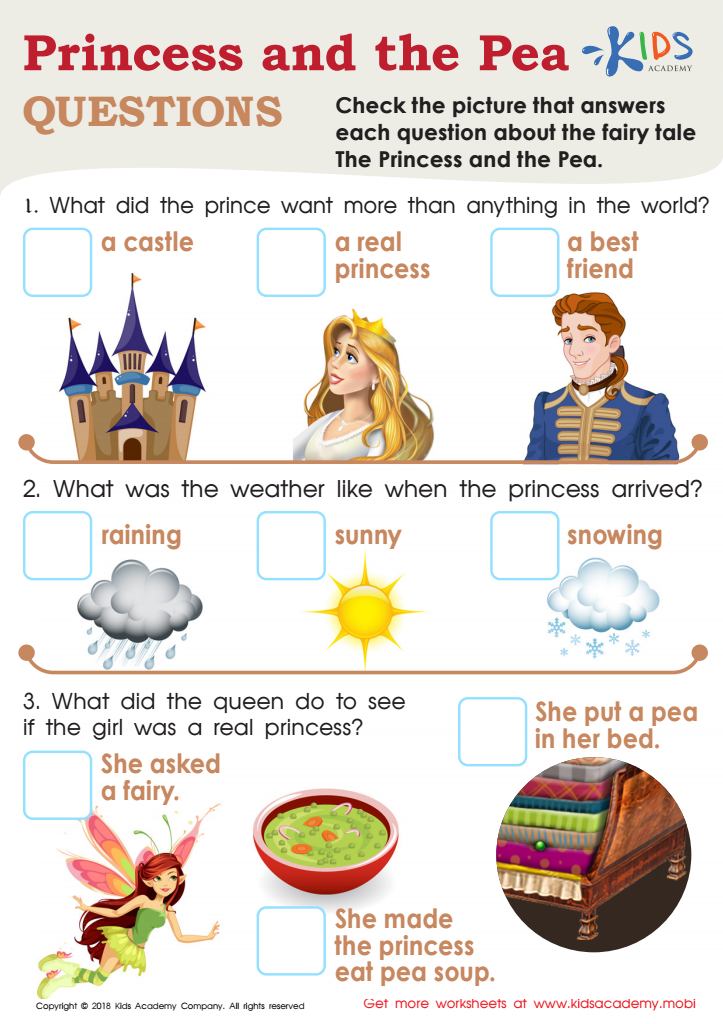

Princess and the Pea Questions Worksheet
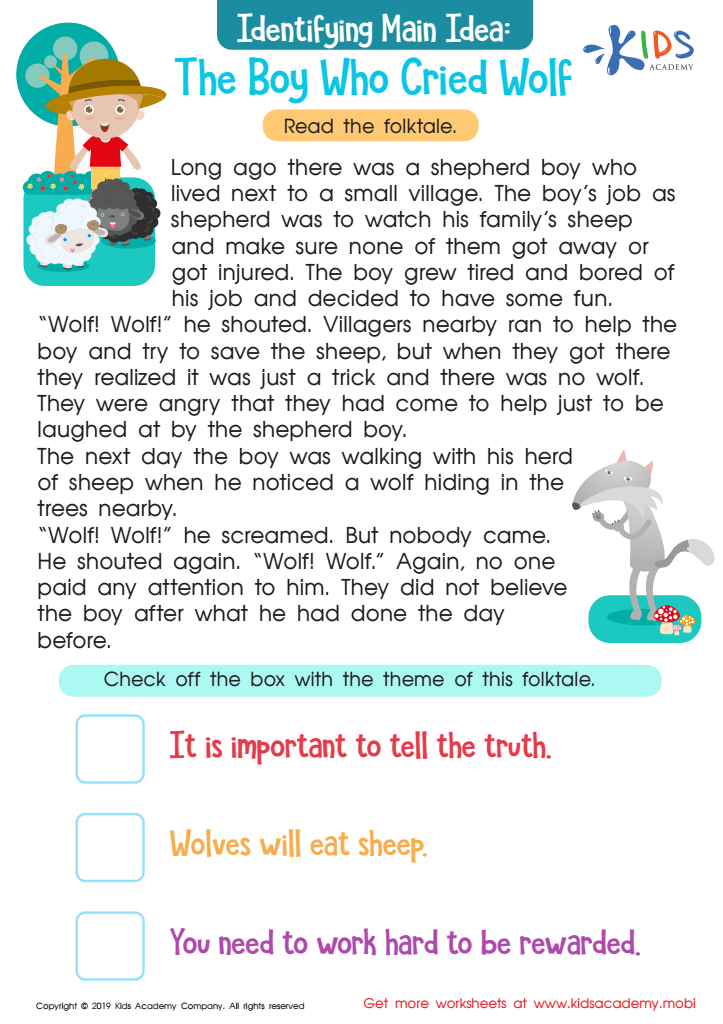

The Boy Who Cried Wolf Part 2 Worksheet
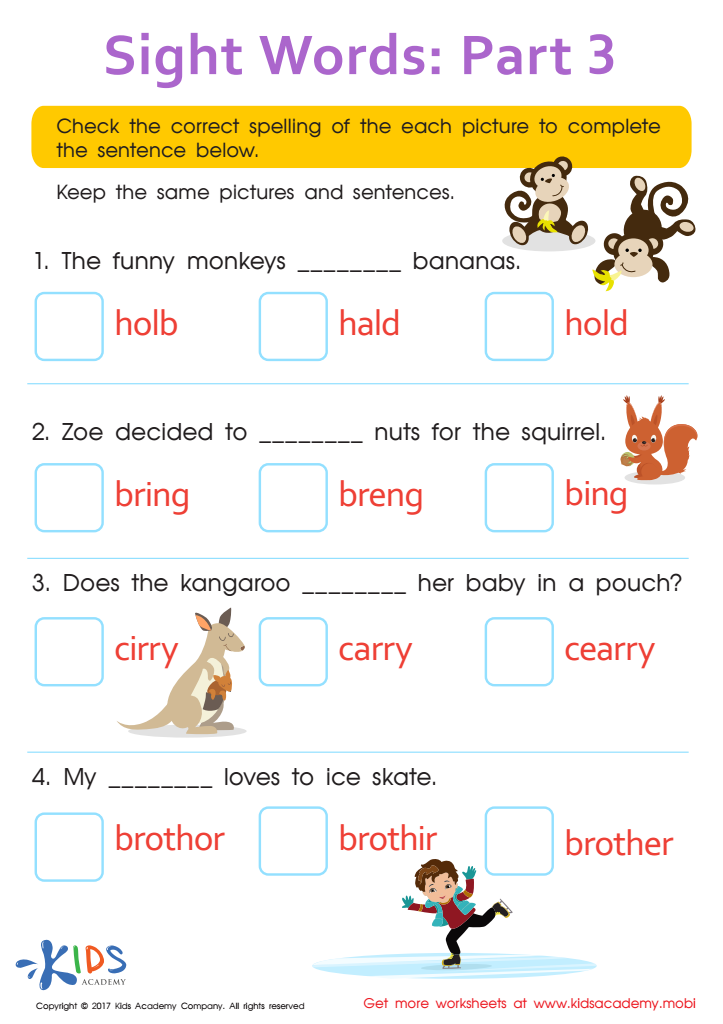

Hold, Bring, Carry, Brother Sight Words Worksheet
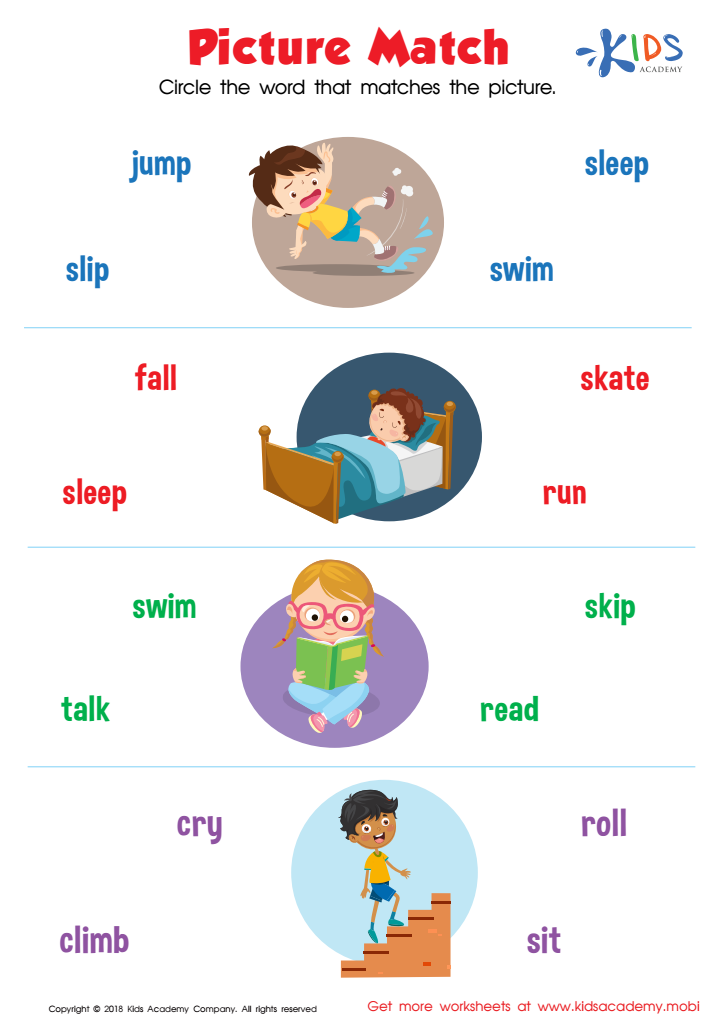

Picture Match Worksheet
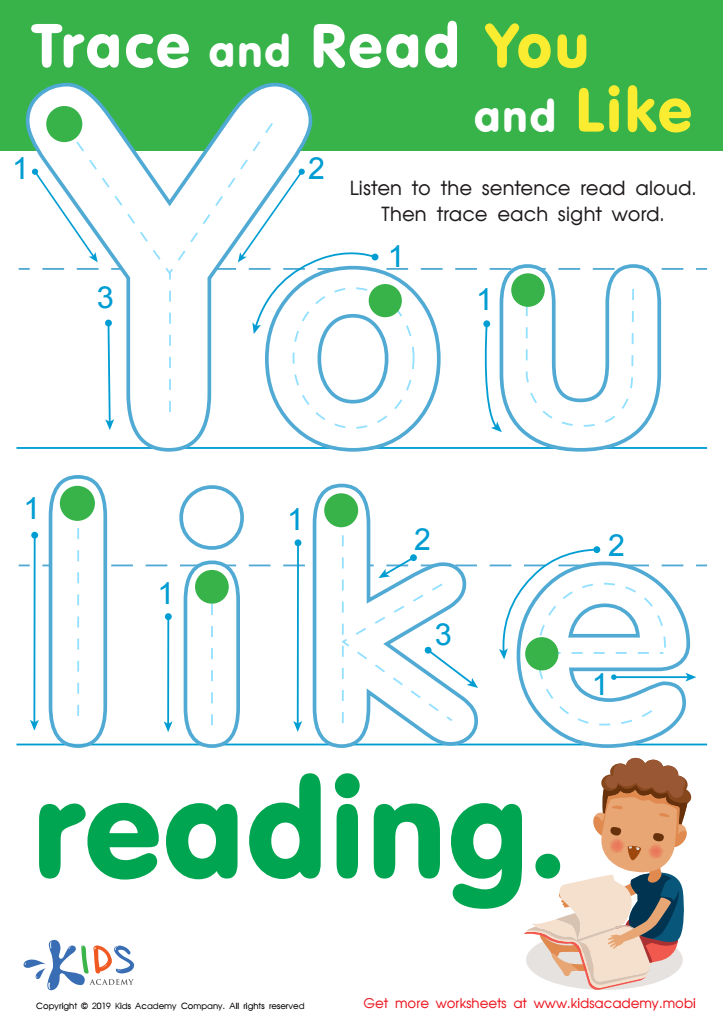

Trace Read You Like Worksheet
Building vocabulary for children aged 3 to 9 is crucial for their cognitive and academic development. During these formative years, children are like sponges, rapidly absorbing language and concepts that influence their ability to communicate, understand instructions, and express feelings. A robust vocabulary enhances reading comprehension, essential for academic success, as children progress from learning to read to reading to learn.
Parents and teachers should care because a rich vocabulary fosters confidence in self-expression, enabling children to articulate thoughts and ideas. Additionally, it aids in developing critical thinking skills, as a broader vocabulary encourages children to engage with diverse texts, ask questions, and make connections between concepts.
Furthermore, early vocabulary development is connected to later literacy skills; studies indicate that children with larger vocabularies tend to perform better in school. Supporting vocabulary growth through storytelling, conversations, and interactive activities promotes a love of language and learning. Ultimately, investing in vocabulary building during these years not only prepares children for academic challenges but also equips them with essential communication skills for life, shaping well-rounded individuals capable of engaging meaningfully with the world around them. Encouraging a collaborative approach between parents and teachers enriches this essential learning experience.

 Assign to My Students
Assign to My Students


























